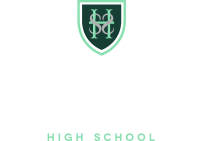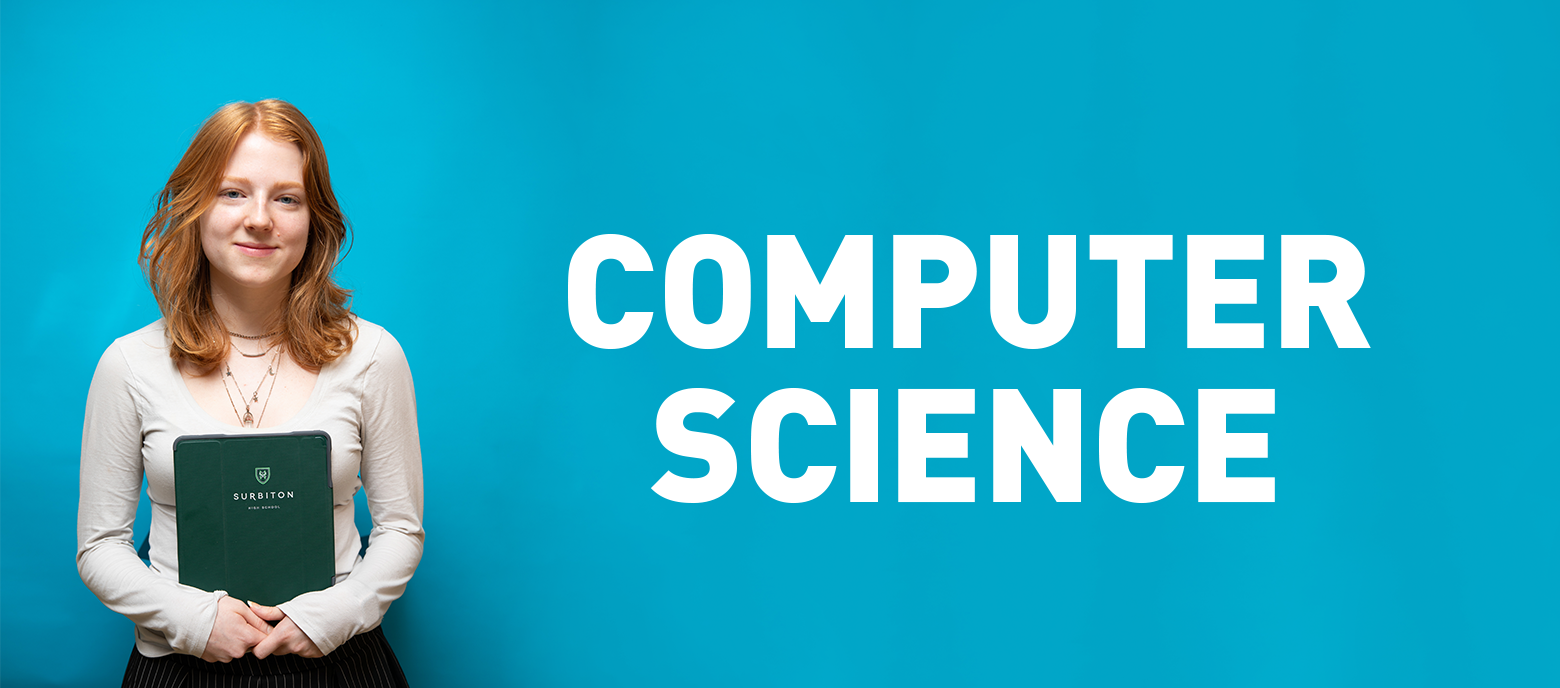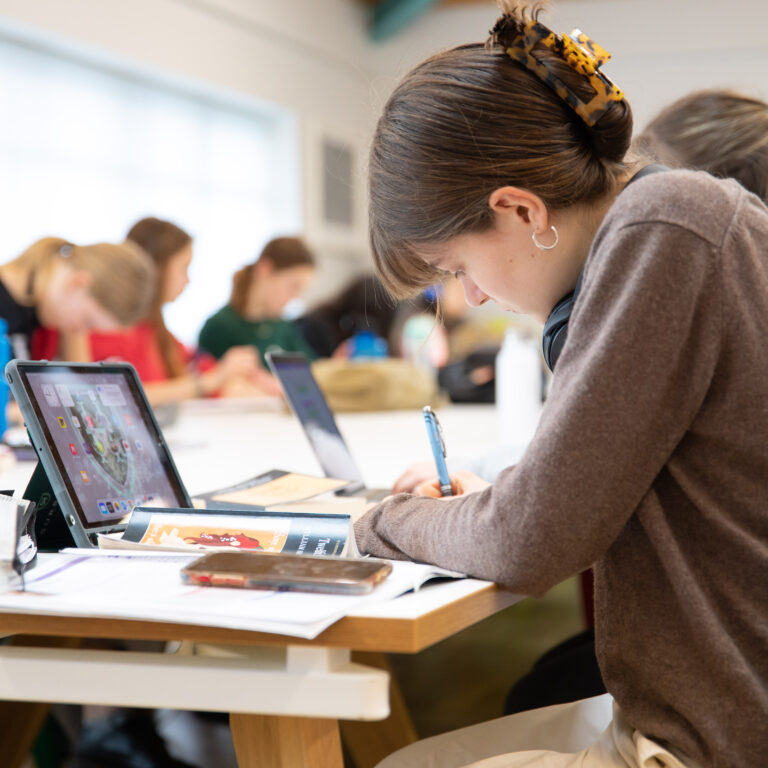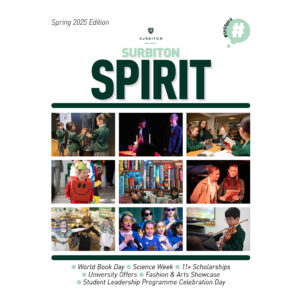Examination Board: AQA
“Anyone who has lost track of time when using a computer knows the propensity to dream, the urge to make dreams come true and the tendency to miss lunch.”
Tim Berners-Lee
Computers make the world around us work and there is a demand for multi-talented people who can help to develop the next generation of hardware and software. Programming computers and creating systems requires an understanding of mathematics, engineering, sciences, psychology and linguistics. This course will introduce students to the ‘behind the scenes’ world of the computer.
You will learn the fundamentals of computing data, hardware, software and networking whilst also using this new knowledge to solve problems in a logical way. You will be introduced to programming, where you will learn how to make a computer do what you want it to do. This could be anything from building a dynamic and usable website, to building your own game for a smartphone.
The course starts from the very basic, so no prior knowledge is required. However, if you are considering Computing, you should be aiming for a good grade in Mathematics at GCSE. This is due to the fact that the course requires logical thinking and you will need to be comfortable with this to allow you to focus on the computing aspects of a problem.
An A-level in Computing is a highly-regarded qualification that should definitely be considered by anyone who thinks that they may go on to study Mathematics or Sciences at university. However, the skills gained in Computing A-level would fit with almost any other discipline, including creative ones such as Design and Technology or Art. Employers will see from your studies in the subject that you have the ability to solve problems, and to do so logically. The skills you learn by studying Computing at A-level will be useful for a lifetime.
Learn more about Surbiton High Sixth Form.
